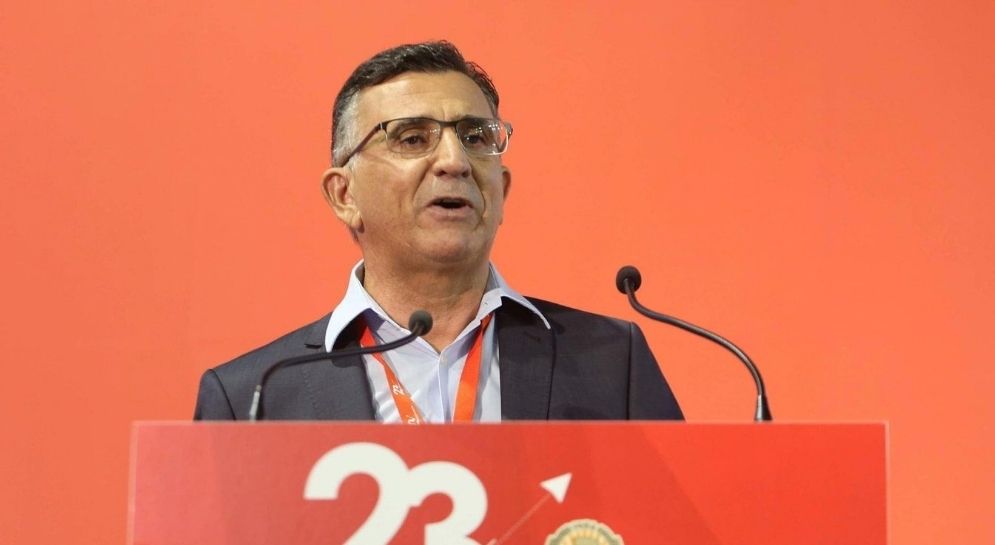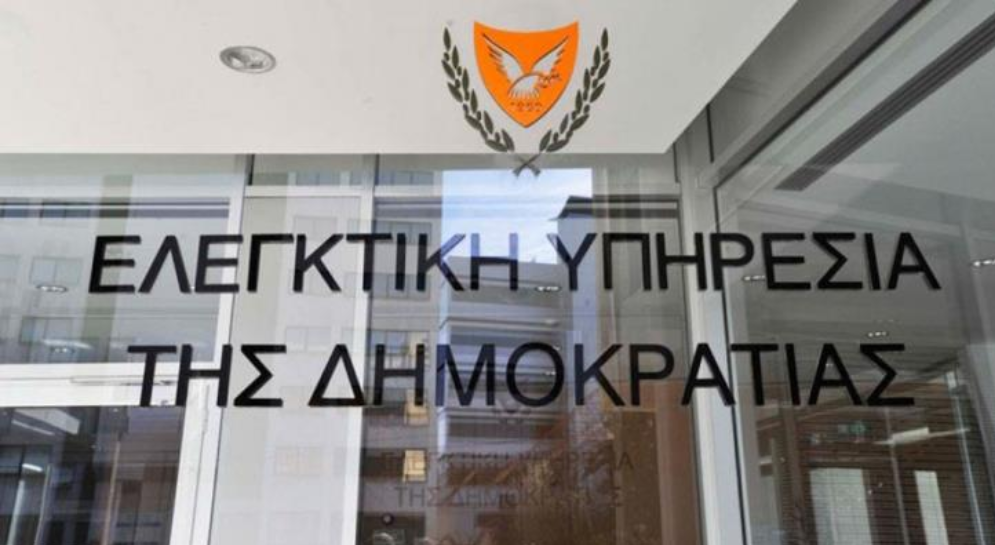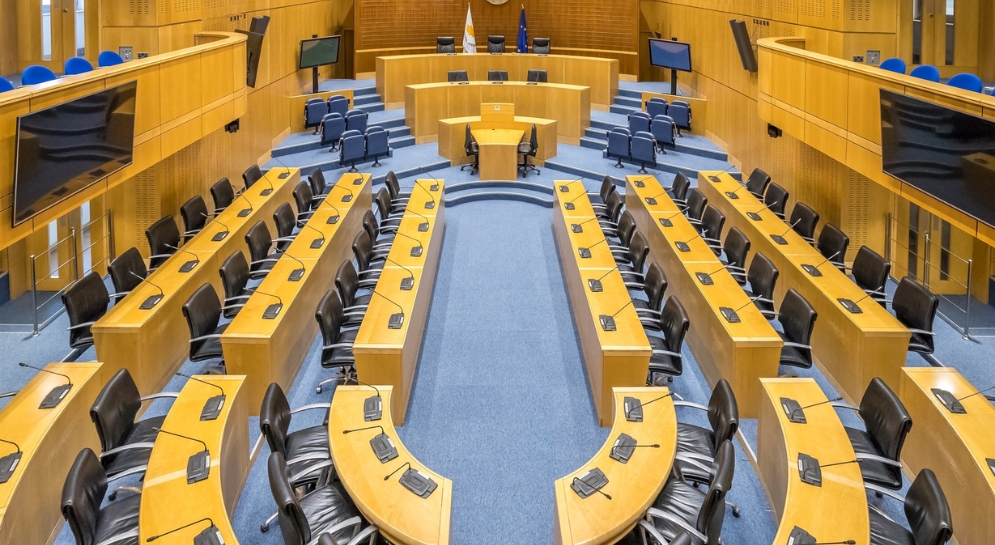
Interview with Nikos Ioannou, member of the Secretariat and Political Bureau of AKEL
- AKEL will become neither a labour, nor a social democratic party
- The extraordinary Congress will mark a new beginning
- Preconditions have been created so we can work hard to restore AKEL to the position that the Cypriot people have traditionally accorded it
- AKEL took bold steps for the good of the country, knowing the degree of difficulty that this candidacy would face, first and foremost, among a section of the party and the left
- N. Christodoulides did not defend the Automatic Cost of Living Allowance for all workers, nor did he convince people that he has policies to support middle and low income strata
Sunday 19 March 2023, “Haravgi” newspaper
QUESTION: Last Saturday the Central Committee of AKEL discussed the result of the presidential elections. Did you anticipate such a high percentage in both the first and second rounds?
NI: The result of the first round exceeded our expectations, particularly if we take into account what opinion polls were indicating. As AKEL we began receiving encouraging messages from November, when voter interest started to increase.
The fact is that the candidacy of A. Mavroyiannis began with low expectations, as his two main rivals had started their own campaign much earlier and were clearly more recognisable as well-known political figures for a number of years. Andreas Mavroyiannis’ candidacy gradually gained momentum.
It must be pointed out, however, that the opinion polls conducted played their part in forming the final result, as they have for some time fostered and cultivated the belief among the people that it is almost unnecessary to hold any elections because there was supposedly only one certain winner. In the end, it turned out that Mr. Christodoulides’ victory was far from being certain.
QUESTION: How should someone ultimately assess this result, as a victory or as a defeat?
NI: The main stakes of the presidential elections were a change not only of persons [in government], but of policies as well. Unfortunately, this goal was not fulfilled. Nicos Christodoulides had stated many times that he would continue the Anastasiades government’s policies.
Things would clearly have been different had the parties that had proclaimed that the country must rid itself of the Anastasiades government had supported a candidate for change together with AKEL. In the end, for reasons that do not concern AKEL, this was not made possible. It should be noted that Mr. Anastasiades, while his party was reeling from the consequences of its election failure, phoned the leaders of parties that supported the candidacy of Mr. Christodoulides to congratulate them. This in itself says quite a lot…
As far as AKEL is concerned, we fought a very hard battle for the victory of the Mavroyiannis candidacy and together with the support of social forces we managed to get 48% of the vote. We may not have won, but we feel politically and morally satisfied and empowered enough to see how we can strengthen AKEL the day after the election.
QUESTION: What has AKEL gained from this election campaign?
NI: I can list a number of political benefits/gains:
The vindication of our decision to back the candidacy of Andreas Mavroyiannis, a man who brought a new ethos to our country’s political life, something the country needs. AKEL took bold steps for the good of the country, recognising the degree of difficulty that this candidacy would have, first and foremost, for a section of the party and the left.
There was almost a total rallying and repatriation of left-wing voters who had previously distanced themselves from us.
Bridges of communication have been created with people with whom we share common positions on the course the country should take.
Preconditions have been created for us to work hard to restore AKEL to the position and strength that the Cypriot people have traditionally accorded it.
The stakes of the presidential elections, namely the resumption of substantive efforts to solve the Cyprus problem, and the progressive responses to economic and social issues, did not end because the presidential elections were over.
QUESTION: AKEL managed to win back a number of voters who had abstained from elections in recent years. Are you concerned about how they will continue to support AKEL and not go back to abstaining?
NI: That is what is primarily at stake. Namely we should not dwell on the findings of the election, but to move forward to the day after. It is not an easy task, we do not have magic solutions. We need to work hard to bring together ideas, opinions and proposals from our members, friends, from people on the left who for their own reasons have distanced themselves and from people who have found themselves in the same trenches of election struggle over the last few months. There are no ready answers as to how to do this.
This will be the outcome of a long effort which will culminate in our upcoming Congress, which will not only be a statutory one, but should be transformed into a Congress to discuss the day after of AKEL. The statutory Congress will not discuss issues concerning changes in AKEL’s ideological and class orientation. AKEL will not become either a labour or a social democratic party. It will however be able to open its horizons and embrace people who may not have a common ideological identity, but who share common concerns, sensitivities and perceptions for the forging of a powerful alliance of left and progressive forces.
In 1941, the Communist Party of Cyprus (CPC) did not transform itself into AKEL simply to move from an illegal to a legal status, but to open up to society and win over forces in society with common visions. The left subsequently made its own mark in the first democratically-elected municipal councils, which represented the springboard for the development of our party’s creative activity.
QUESTION: At the Congress in October, will you also examine ways of regaining at least part of the electoral strength that AKEL has lost over recent years?
NI: Congress will also discuss issues relating to AKEL’s organisational structure, as well as the restructuring of the custom of the ‘New Forces’ and the strengthening of our relations with social organisations/movements and personalities with a view to forging a broader social progressive alliance.
The Extraordinary Congress will mark the beginning of the procedure so that AKEL can increase its electoral influence in society. Despite the decline in its electoral percentages during the last two parliamentary elections, AKEL remains a major force with influence in society and a genuine defender of the working people, and we have already stated that we are not satisfied with the figures we currently record.
We have a change in government. In the economic field, the positions of the new government, apart from a few minor changes, seem to be pursuing the same policies as those of the previous government, which is what N. Christodoulides himself has said.
We had stated this fact during the pre-election campaign and we meant it. Nikos Christodoulides himself said during the pre-election period that he would be a continuation of the Anastasiades government. However, the issue is not to change the faces in the Council of Ministers, but to change policies and mentalities.
Nikos Christodoulides has expressed erroneous positions on various issues. When pressed, he did not defend the position that the Automatic Cost of Living Allowance should be extended to cover all workers, nor did he uphold the abolition of the 12% penalty on those choosing to retire at 63. Nor did he convince people that he has positions to support the middle and low income strata.
It is no coincidence that the majority of the young generation voted for Andreas Mavroyiannis. It is precisely the young generation that is most affected by the neoliberal policies that have been pursued and with their vote youth have asserted that these policies be abandoned.
If only the new President will proceed to the implementation of pro-people policies. In that event we will be the first to support this effort.
Free and democratic debate on changes in procedures
QUESTION: Have you discussed the changes that will be proposed at the statutory Congress? Should we expect, for example, changes in the way the party leadership is elected, or is the focus elsewhere?
NI: We consider that certain provisions in the Party statutes need to change. After all, conditions of life itself demand it. For example, the procedure for selecting the candidate we support for the Presidency of the Republic. Our procedures are the most democratic, but unfortunately they are quite lengthy. Society today moves at a very fast pace. We have begun to discuss how to integrate technology so that communication with the grassroots membership is immediate and fast. At the same time, we do not disregard that personal contacts with people is our irreplaceable weapon.
Beyond that, there are some issues that we need to deal with and discuss. Can the General Secretary of the party be elected by our Congress instead of the Central Committee? We can discuss this freely and collectively to arrive at a conclusion.
AKEL has almost 100 years of life and struggle. We will not throw away what the party has taught us. Namely, to listen to the common people. To listen to their concerns. To be close to them and demand solutions to their problems and, of course, not to lose our class orientation and remain humble and down to earth.




